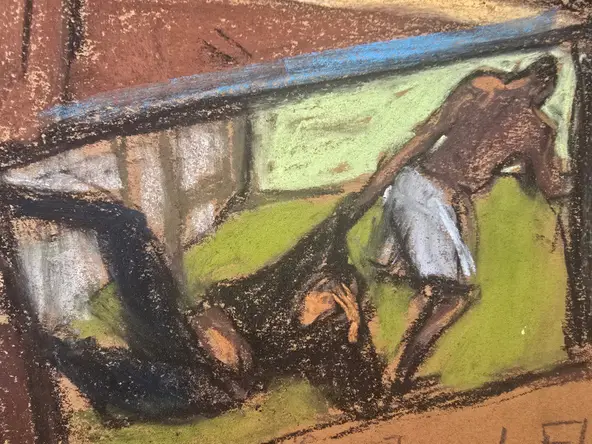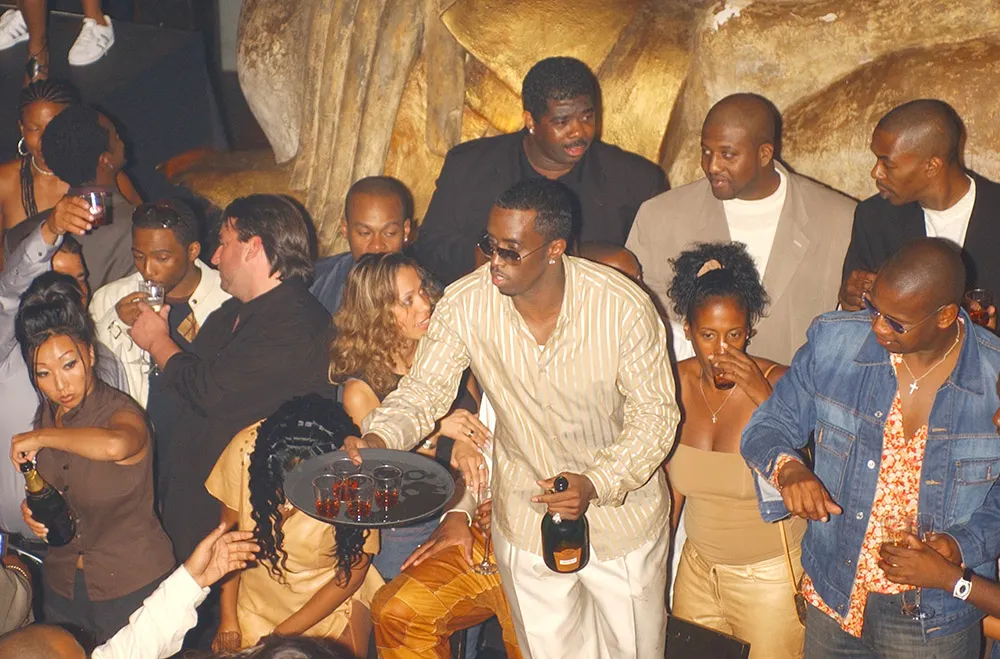By Mariam Karagianni,
Whenever I read about a long-term relationship that ends up in court with the woman testifying to the abuse she withstood, I usually take a deep breath before reading or seeing other people’s reactions. It never ceases to amaze me how, in an era where feminist discourse is deeply woven into our digital, cultural, and political fabric, the question “Why didn’t she leave?” never fails to appear. While it’s (unfortunately) something I would expect from an average man, I think it’s rather heartbreaking when I see a woman sharing similar, misogynistic and callous views.
With Casandra “Cassie” Ventura’s recent testimony against Sean “Diddy” Combs—in harrowing detail about the physical, sexual, and emotional abuse she endured—I did not expect the sheer number of women (!) coming online, twisting the case and making it sound as if Ventura was volunteering in the calamity that befell her and that Combs is an angel on earth. And beneath these outrageous posts lies a not-so-subtle, festering undercurrent of sexist victim-blaming that transcends Hollywood and penetrates the very foundations of the societal psyche.
Cassie became acquainted with Combs at the tender age of 19, while he was 35 years old. And soon after, they pursued a relationship. In that decade-long imprisonment, Combs was at the height of his influence and power in the entertainment industry, whereas Ventura (who admittedly had a very promising beginning) was just starting out and later cast into the shadows. The power imbalance is a crucial factor in abusive relationships. “I was just so young,” she said, recalling its start and its turn to sex. “I didn’t even have the vocabulary for some of the things we talked about.”

This lawsuit includes, among other allegations (and confirmations), rape, forced drug usage, coercive control, and physical violence. It depicts how, oftentimes, women feel embarrassed to leave and let the world know they had been treated that way. Cassie, in fact, mentioned that when Combs blackmailed her with recorded tapes of her sexual activities in the so-called “freak-offs,” she feared that their release would signal to the world that “she’s a slut.” Her family and friends were the first on her mind.
To ask a woman why she didn’t leave is to reduce such a complex, psychological, trauma-bonding, and oftentimes life-threatening ordeal into a simplistic decision. Autonomy is presupposed in a system where it simply doesn’t exist. As she confessed herself, she didn’t try to leave because she understood Combs’s capabilities, his access to guns, and the threats prior to that. Abuse doesn’t always come in the form of a broken bone or bruised skin—though that horrifying footage CNN leaked showed there was no lack of that as well.
Abuse also translates to power and forced domination and the fastidious dismantling of one’s self-worth. And then, like in this case, where it’s not just a romantic partner but a significant industry figure, the layers of coercion are almost impossible to extricate from one’s life. Because, when speaking of a cultural juggernaut like Combs, to speak against him is to put yourself against an army of loyal fans, a messy media outlet, and people higher in the institutional hierarchy of the entertainment business who want to keep the mythology of him intact. It’s no surprise that, often, victims of celebrity abusers prefer to remain silent and just take the money (if offered); it is easier than facing a public and digital inquisition.
There’s a collective tendency to question the victim’s choices in romantic partners rather than address the actions of the abuser; it reveals a tacit, internalized misogyny—a belief system so normalized it’s often adopted unconsciously by women as well. This manifests itself in various insidious forms: It questions the survivor’s timing, promotes speculative whispers about possible “motives,” and the media tends to sanitize male violence while underscoring female complicity.
Notably, in this case, Teny Geragos, one of the lead defense attorneys of Combs, claimed that for every day over a decade, Ventura made a choice to stay. The reason why she and other alleged victims changed their tune was, as she suggested, simple: money. Furthermore, she emphasized that this case is about love, jealousy, infidelity, and money—and that there’s no criminal activity. While trying to paint an innocent image of him is part of her job, in the words of Geragos we see that this internalized sexism is not something that simply happens; rather, it has a pedagogical nature.
Since time immemorial, women have been duly indoctrinated to accommodate, to be empathetic, and to endure without complaining. Women that stand by their men are lionized, and we have been spoon-fed the narrative that jealousy and possessiveness equal love. And when abuse becomes something so normalized and hushed, automatically women police other women—and themselves—by victim-blaming and asking questions like what they had done to provoke the men in question. And this echoes the dooming societal scripts.
So, the wrong questions have been asked. Instead of “Why didn’t she leave?” perhaps we could try, “What elements made leaving unimaginable or perilous?” Aside from celebrity culture, this applies to everyone. Structures like pathological entrapment, financial dependence, and a notorious justice system that remains mostly apathetic to the nuances of abuse must be taken into account. Coercive control does not just refer to physical violence but is a calculated strategy of domination, where the abuser first gains trust and access to the victim. Then, fear is gradually instilled, and over time the person loses agency and autonomy. Escape, in this case, is not difficult—it’s conceptually and existentially disorienting.
Psychological responses like Stockholm syndrome or learned helplessness that are triggered in these situations are what the public mistakes as complicity, further complicating everything. Courts, on the other hand, continue being the bastions of skepticism toward women, especially when the accused is a wealthy and influential male. The legal constitutions mainly demand what I will call a perfect victim—one that resists explicitly, flees at the first indication of danger, and has no lingering emotional complications with her abuser—which is a strategic way to deflect accountability from the perpetrator. Let’s not also forgo that pursuing legal action comes with more danger for the survivor when their reports are met with little to no consequences.

For far too long, society has treated intimate partner violence as a private tragedy rather than a systemic and societal crisis; this is more than an individual failure but rather a cultural one. Abusers do not operate in a vacuum on their own accord; they are enabled by legal loopholes, corporate complicity, the collective willingness to turn a blind eye, and their gender. And while the main example in this article is a Hollywood couple, it means no less that institutions worldwide must be reformed so they cease perpetuating vicious cycles of aggression, where reputation is prioritized over lives.
Aside from legal reformations, what we as a society should do is discard the reflexive doubt toward allegations of abuse and cultivate a culture of belief rather than speculative interrogation. Therefore, the question “Why was he allowed to stay and do that?” must become the norm. Why are men who built their power and fame on the subjugation of others still exalted? Why do we demand a perfect execution of the survivor’s pain to maybe deem them worthy of justice? And why has it taken us so long to speak up on such obvious matters and point them out, when we are supposedly living in a civilized and democratic world?
References
- Cassie Ventura finishes emotional testimony. The Washington Post. Available here
- The Unsettling Spectacle of Cassie’s Diddy Trial Testimony. Vanity Fair. Available here
- What We’ve Learned From Diddy’s Sex-Trafficking Trial So Far. The Cut. Available here




